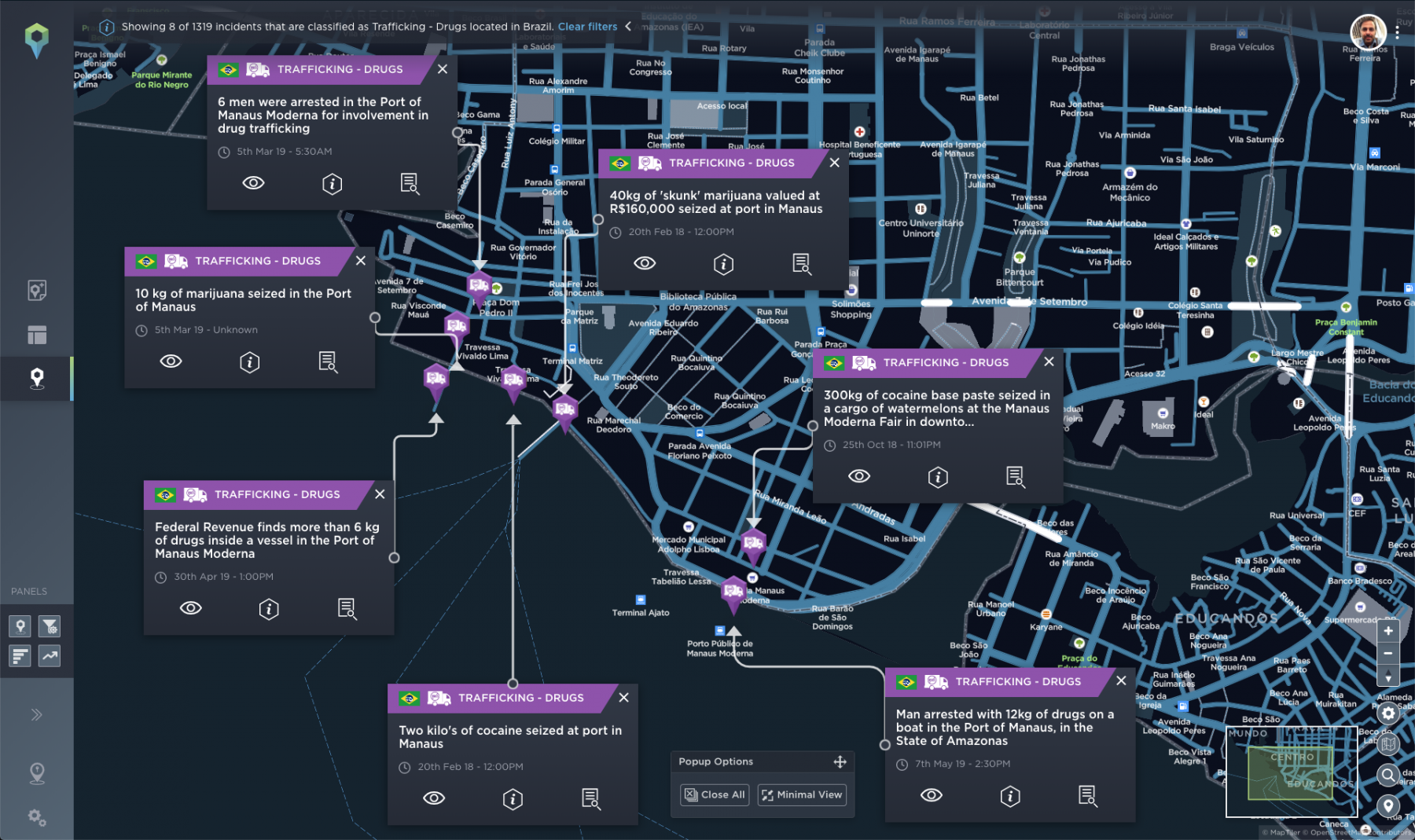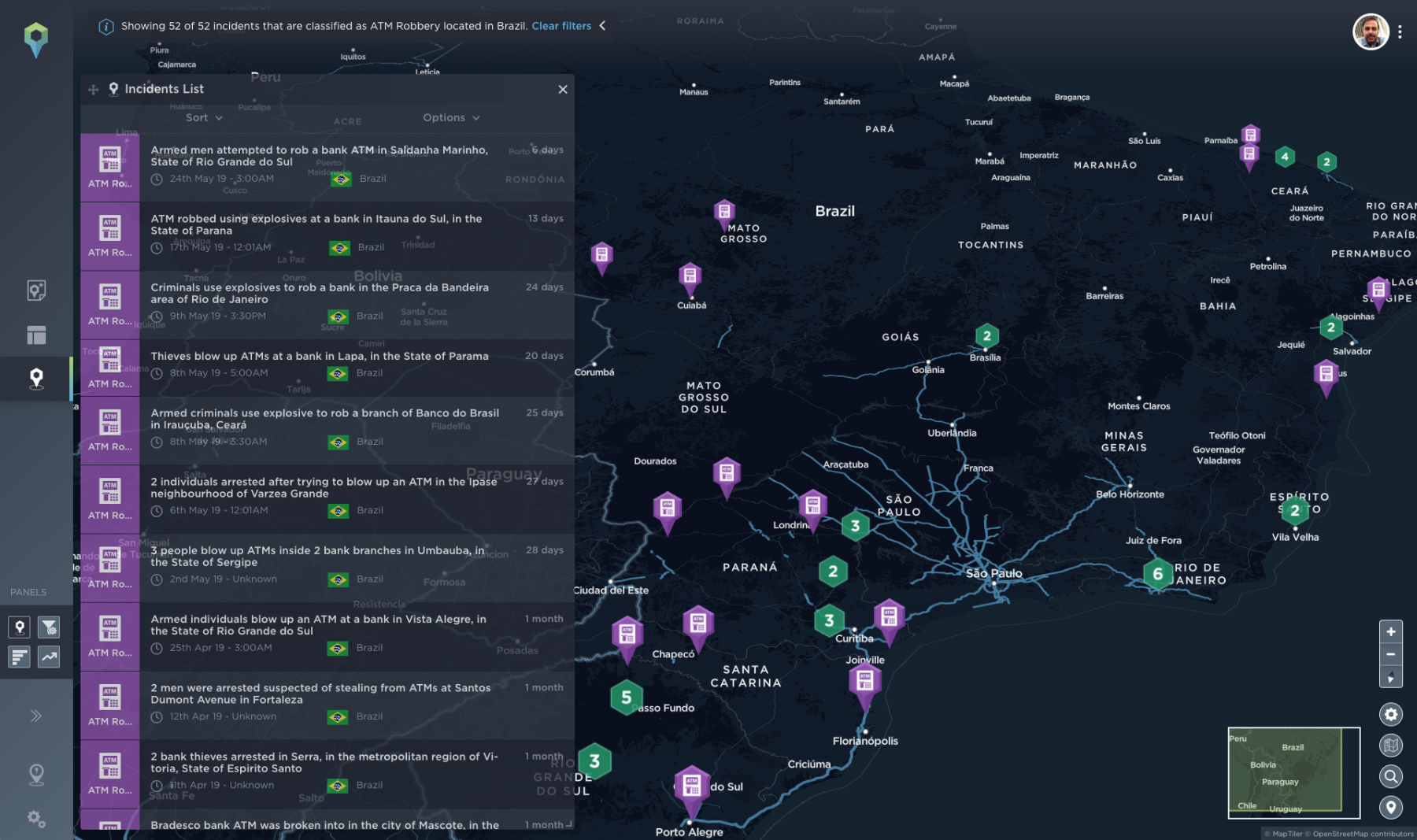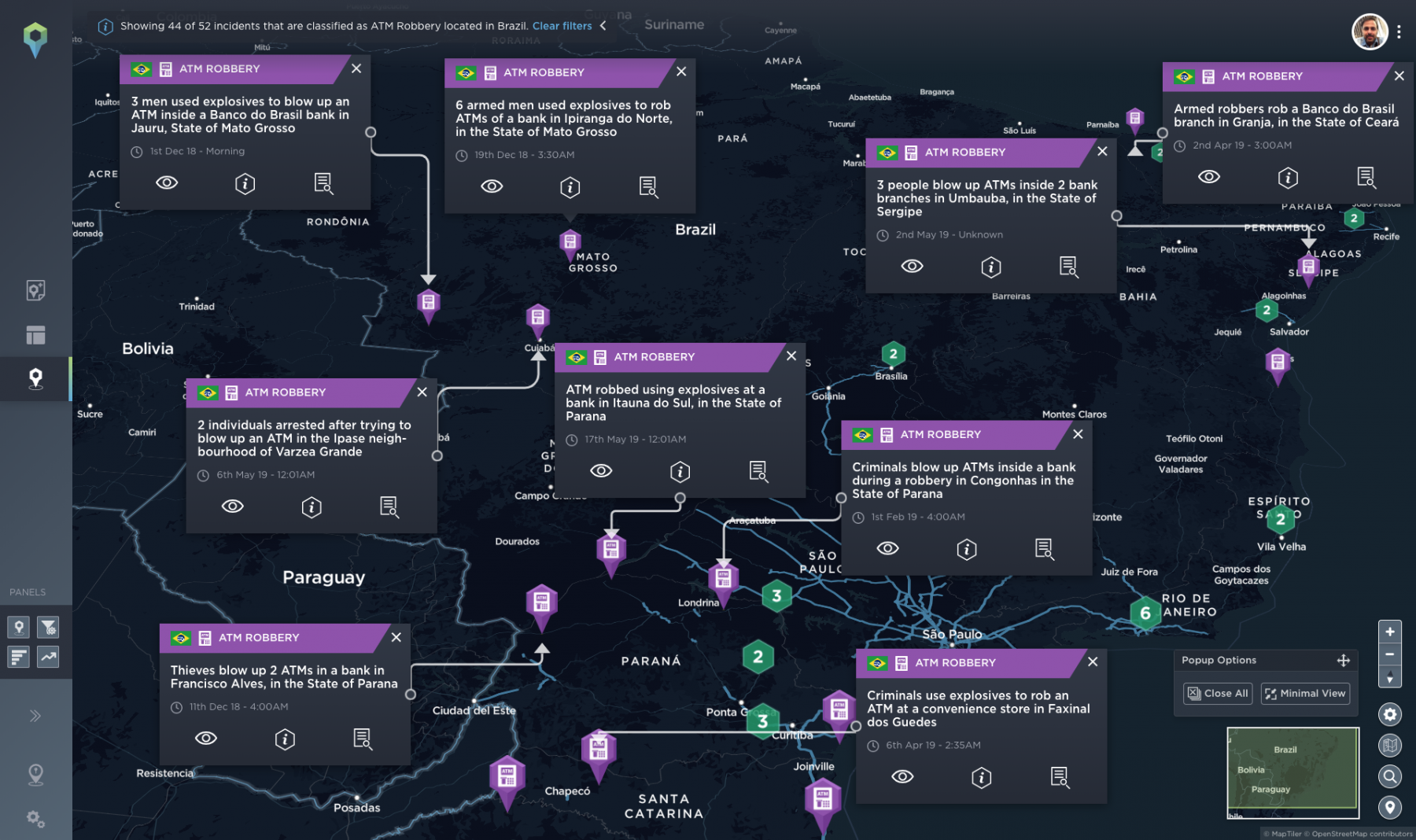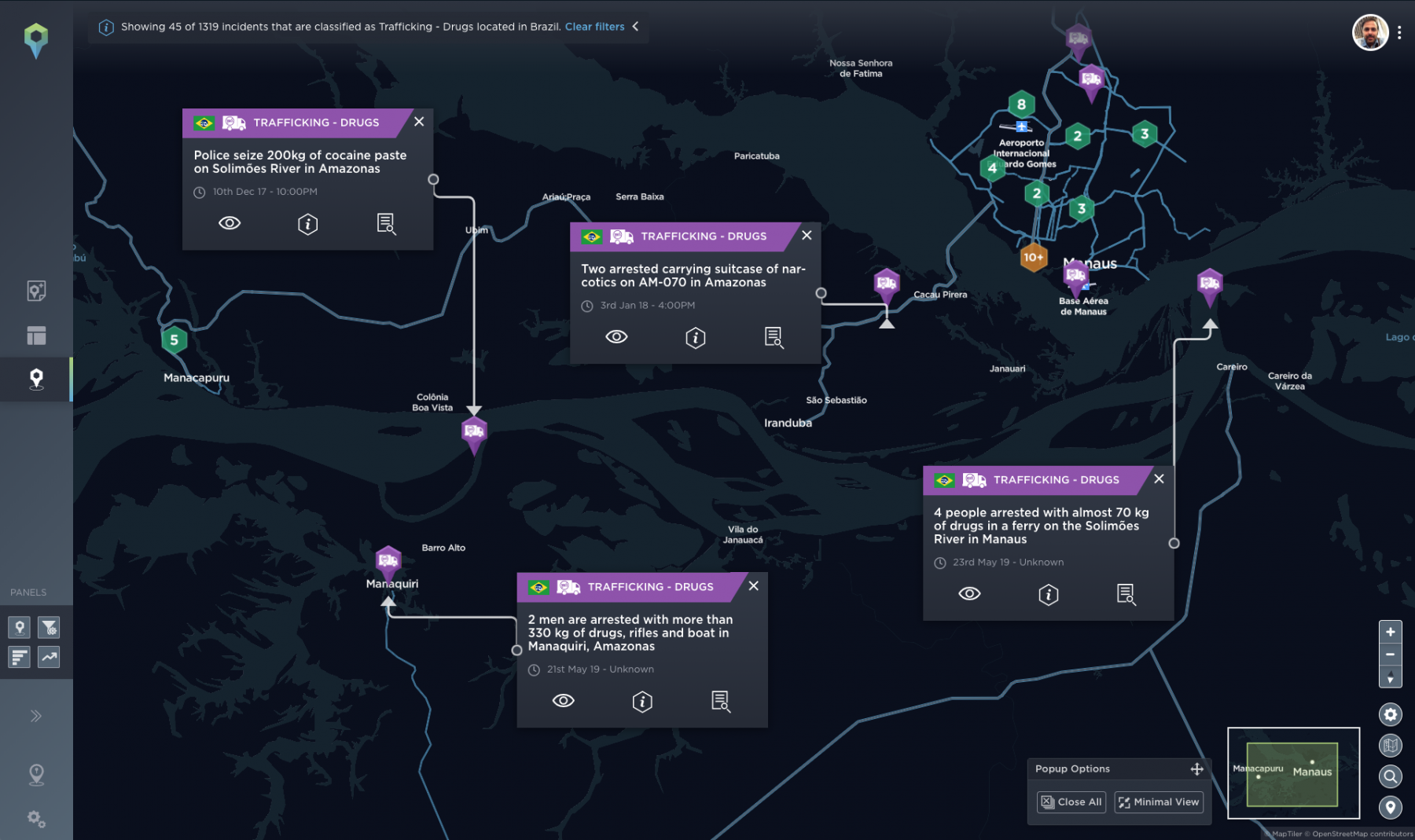Narcosul: Organised Crime in the South American Capitals
The Hegemony of the PCC Among the Organised Crime in the Region
The lack of communication between Latin American authorities, the institutionalised bureaucracy and the lack of deadlines for trials related to drug trafficking in South America have been severely criticised by public security authorities in Brazil, Peru, Bolivia and Paraguay, among other countries the region.
These countries are fighting a phenomenon with transnational dimensions where regional cooperation is essential. Despite the United Nations’ Office on Drugs and Crime trying to establish a more articulated environment, it has had little effect against the scourge of drug trafficking. Due to a lack of unity among countries of the region, South America is witnessing the emergence of what has been known as Narcosul.
The PCC (Primeiro Comando da Capital/First Command of the Capital) is the largest criminal organisation in Brazil and, consequently, one of the largest in South America. It emerged and grew in the Brazilian prison system and has now become an interlocutor of the main criminal factions of the region, with a leading position in Narcosul.
The criminal organisation benefits from tactical difficulties, bureaucracy and the lack of interpretation from the part of the authorities on treating it as a transnational organisation. PCC is an international criminal organisation, and it commits crimes throughout the South American continent, including using the countries’ banking systems in order to launder the money made through their drug trafficking activities. The group’s structure of horizontal management also causes problems in that authorities are never able to completely rid the group’s presence in the localities in which the group is being targeted.
Narcosul, led by the PCC, has worked to meet the demand of millions of cocaine and marijuana users on the continent. Their modus operandi, whether in Manaus, La Paz, Lima or Iñapari, had been to divide and conquer and grow strategic alliances to grow the profitability of their business and minimize business risk in the countries it operates in. The organisation is involved in the trafficking drugs across the Atlantic to Europe, handing a USD 4 billion a year trade, and employing more than 30,000 people.

The rising South American transnational cartel, in its complete constitution, has the two largest cocaine producers in the world, Peru and Bolivia, from which it acquires the base paste for cocaine production and other coca leaf products. The leader in the cultivation of marijuana in the region is Paraguay which is also a part of the organisation. Additionally, Brazil is one of the largest cocaine consumers in the world, and a key transshipment point for cocaine going to Europe and Africa
Drug trafficking is the cause of the vast majority of crimes that occur in South American cities and the money and products it generates is the currency of trade among factions and militias.
Part of the PCC’s strategy as a means to solidifying Narcosul’s grip in the region, has been to finance piracy in the areas of control of its rivals. This includes financing pirates on the rivers of the state of Amazonas where the drugs going to the Familia do Norte (Northern Family) and the Comando Vermelho (Red Command), a group that broke with the PCC in 2016, transit through. In exchange for pirates disrupting the drug supply chains of the PCC’s rivals, the PCC provides protection in prisons for the pirates.
Consequences of the Expansion of NARCOSUL in Urban Centres
A side effect of PCC’s Narcosul has been the increase in violence in cities across Brazil and in cities in the countries in which the organisation operates in such as Lima and San Juan Caballero.
Additionally, clashes between pirates and drug traffickers on the rivers of the state of Manaus have become more common, and have ended up at times with beheadings in the forests of the state. In other cities of the country, there has also been an increase of ATM robberies using explosives, bank robberies and conflicts with smaller criminal groups that do not submit to the power of the PCC. These are eventually eliminated or assimilated into the PCC.

The reaction of the Familia do Norte, has been to recruit dissidents from the Revolutionary Armed Forces of Colombia (FARC) to participate in the transportation of drugs, mainly from Colombia. These individuals, armed with heavy calibre weapons, have the responsibility to ensure the arrival of the drug in the capital of Amazonas. Additionally, they have disseminated their expertise in the use of explosives among members of the organisation. Currently, the process of agglutination of the Northern Family by the PCC takes place.
As noted earlier, the PCC is not limited to one type of crime. Bank robberies have been a great source of revenue for the organisation. In Brazil, criminals use the ATM explosion technique. To do so, criminals use dynamite or fill the ATMs with gas which they then ignite causing an explosion. By 2018, there were at least 5,000 ATMs that were destroyed according to data from the Civil Police. It is not possible to tell which part is assigned to the PCC since, after all, they have no ex-clusivity in this method.

An estimation by public safety researchers projected the PCC involve-ment rate of about 50% of occurrences. The illegal trafficking of explosives used in these types of events originates in Paraguay and Bolivia, mainly in the Cerro Rico of Bolivia where the material is widely used by the mining industry.
There is also a rising occurrence of homicides that security officers in a dozen states say follows a prevalent pattern. It was pointed out by the last Public Security Brazilian Forum that almost all violent deaths registered in Brazil are the result of a war between factions passing through the process of assimilation by larger cells.
There are no official statistics to allow a precise analysis of the impact of these confrontations on the total number of homicides in the countries or capitals where they take place. Some figures are estimated by local police forces, which in some areas of Brazil have projected that 80% of homicides are the result of the drug trade.
The challenge for the authorities today is to identify and dismantle the networks of influence of the PCC within the Executive, Legislative and Judicial branches of the Brazilian government. Recent discoveries have revealed that PCC criminals have laundered money from the same network of “doleiros”, criminal foreign currency exchange professionals, discovered by Operation Lava Jato, which has been celebrated as the largest anti-corruption investigation in the country’s history, responsible for the downfall of a president and dozens of other politicians. The investigations of the Brazilian Federal Police showed that the financial apparatus of the PCC reached levels of professionalism that placed them within the most sophisticated networks of money laundering already discovered in Brazil.
The use of a joint effort by the police, the armed forces and the work of the Brazilian Intelligence Agency (ABIN) will have a basic objective to break the flow of money laundering and financing of the organisation.
Open Doors to Terrorism
Another effect of political disarticulation and the lack of integrated security policies in the South American region is the gathering of criminals from the countries making up Narcosul. Members of the FARC, for instance, have been recruited by Narcosul to train their members in the most varied forms of crime, such as kidnapping and bank robbery, as well as in the handling of military weapons and terrorist activities.
In addition to using the skills of these paramilitaries to raise and fund the organisation, the PCC since 2018 has been using terror as a method of political coercion in addition to funding the rise of politicians in the Brazilian national congress and injecting money into NGOs operating in the Amazon region.
Last year the Federal Police and National Penitentiary Department in joint action with the Brazilian Intelligence Agency (ABIN), dismantled two plans of the PCC to carry out attacks against agents and to blow bombs in public buildings during the elections. The motives for these attacks would have been discontentment with the changes in the Brazil penitentiary system.
Narcosul’s dangerous liaisons do not stop there and extend far beyond the North Atlantic. According to a Brazilian Federal Police investigation in partnership with ABIN, Hezbollah sells weapons to Brazilian criminal organisations and uses the criminal services of the PCC in Brazil. Specifically, it uses the PCC’s logistics network from the borders of Paraguay and Bolivia to the ports of the Brazilian coast. Hezbollah also brokered the sale of C4 explosives that were stolen in Paraguay and was being sold on the black market at very low prices.
The Brazilian authorities are on alert, paying special attention to the relations between the PCC and Hezbollah, which were strengthened during the period of imprisonment of some of the operators of the Lebanese organisation in Foz do Iguaçu in Brazil. That relationship developed after Farouk Abdul Hay Omairi, a Lebanese man indicted by the US government for his links with terrorist groups, was arrested in Brazil on charges of leading a gang that trafficked cocaine to Europe and the Middle East. With the support of his children, the group was able to operate within the Triple Frontier area without being impeded due to the lack of anti-terrorism legislation in Brazil.
Following Omairi’s imprisonment for money laundering, Brazilian PCC members offered protection him inside and outside prison and began acting as logistic operators of the Shiite militia for the shipment of drugs through Brazilian ports to Africa, Europe and the Middle East.

In return, the Lebanese have provided money laundering and logistics networks so that the PCC, now treated as the Narcosul cartel, can get its products to reach markets already familiar or dominated by Hezbollah. Since then, the partnership has deepened and now the PCC and Hezbollah work together not only in trafficking drugs but also weapons.
Through the management of the PCC, Narcosul has shown itself capable of adapting, of blackmailing the state and as a transnational criminal organisation is one of the greatest threats to political stability and public safety in Brazil and its neighbours. Its capacity of assimilating smaller criminal groups and its accelerated expansion is definitely as worrying as its discourse among its members that there is a war “between them and us,” the state and those marginalised by capital-ism respectively. Unfortunately, for the population of South America, they are the ones stuck in the crossfire.
Intelligence Fusion are monitoring incidents related to organised crime in the South American capitals and can provide real-time alerts on the developing threat. If you’d like a more detailed and complete analysis of the situation to help protect your assets, contact a member of the team today for your free demonstration.
